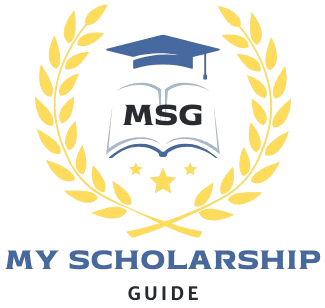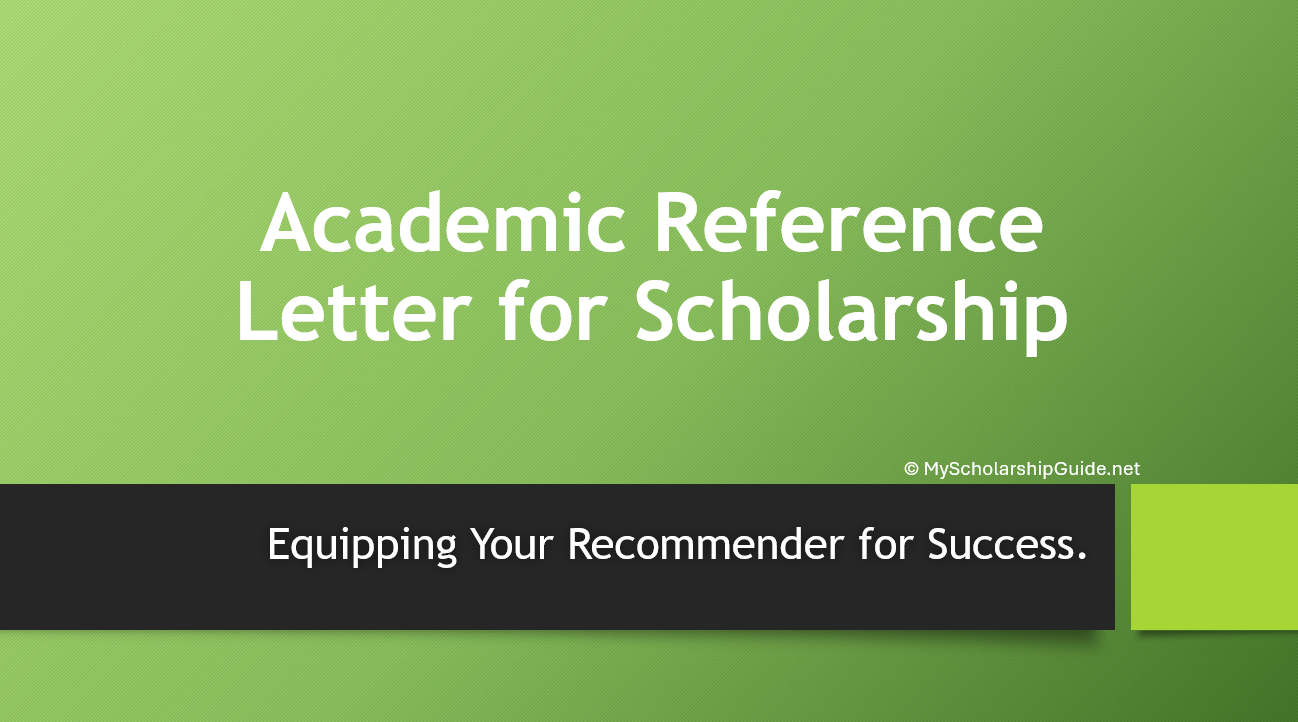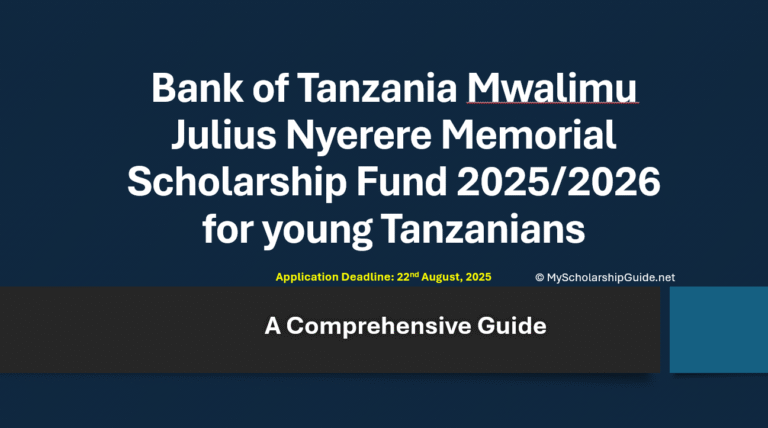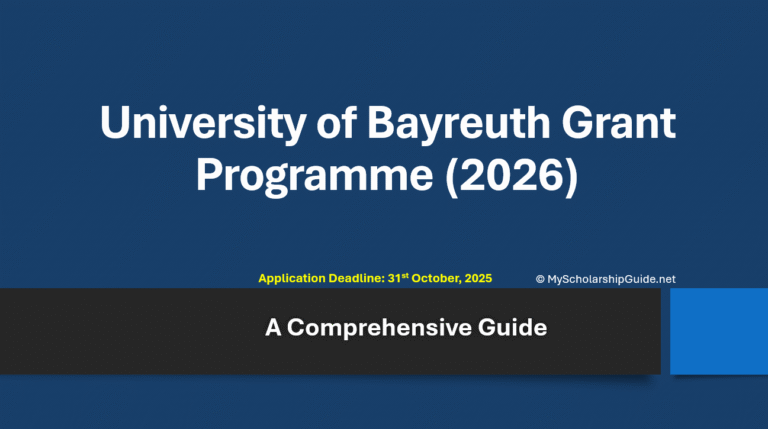How to Secure a Strong Academic Reference Letter for Scholarship Application
How to Secure a Strong Academic Reference Letter for Scholarship Application
The dream of studying abroad is a common one for many ambitious students across Africa. You’ve worked hard, you’ve got the grades, and you’ve spent countless hours perfecting your personal statement. But as you begin to gather your documents, you hit a crucial—and often overlooked—hurdle: the academic reference letter. This is more than just a formality; it’s a powerful tool that can make or break your application. A weak, generic letter can sink your chances, while a strong, glowing one can elevate you above the competition.
So, how do you ensure your recommenders don’t just write a letter, but write a letter that truly works for you? This comprehensive guide will walk you through the entire process, from choosing the right person to making their job as easy as possible. We’ll show you how to transform a simple request into a strategic move that secures you a reference letter that will impress any scholarship committee. We understand the pressure you’re under, and by the end of this article, you will have a clear, actionable plan to get the best possible recommendation.
The Golden Rule: Choose the Right Recommender
Your choice of recommender is the most important decision you will make. It’s not about who has the highest title or who you think is the most popular professor. It’s about who knows you best and can speak to your specific skills and potential. Scholarship committees want to hear from someone who can provide concrete examples, not just generic praise.
Who to Ask (And Who to Avoid)
Do Ask:
- A lecturer or professor from a course where you excelled. This is a no-brainer. They can speak to your academic prowess, your performance in their class, and your contributions to discussions.
- A project supervisor. If you completed a research project, a final-year project, or a long-term assignment under a lecturer’s supervision, they are an excellent choice. They can attest to your work ethic, problem-solving skills, and ability to work independently.
- A thesis advisor. For postgraduate scholarships, your thesis advisor is often the most important person to ask. They have seen your research skills, critical thinking, and dedication up close.
- An academic mentor. If you have a lecturer who has mentored you, perhaps through a student club or a departmental role, they can provide a holistic view of your character and potential.
Avoid Asking:
- A family friend or relative. Even if they are a professor, their letter will carry no weight. It will be seen as biased and unprofessional.
- Someone you only met once or twice. The committee will immediately recognize a generic letter. A recommender who can’t provide specific examples is a red flag.
- A “celebrity” professor who doesn’t know you. While a big name might seem impressive, a short, lukewarm letter from them is far less valuable than a heartfelt, detailed letter from a lecturer who knows you well.
The Power of a Strong Relationship
The best letters come from recommenders with whom you have a genuine relationship. If you’ve never spoken to a lecturer outside of class, it’s highly unlikely they will write a compelling letter. Build these relationships early. Participate in class, ask thoughtful questions during office hours, and be proactive. These small actions create the foundation for a strong recommendation letter down the line.
How to Make the Request: Timing is Everything
Making the request for a reference letter requires respect, professionalism, and strategic timing. Do not wait until the last minute. This is a common mistake that can lead to rushed, poorly written letters.
The 4-Week Rule
Ideally, you should ask for a reference letter at least 4 weeks before the deadline. This gives your recommender ample time to agree, gather their thoughts, and write a high-quality letter without feeling pressured. Remember, they are busy people with many students to teach and their own research to do. Giving them enough time shows respect for their schedule.
The Initial Approach: In Person is Best
When possible, ask in person. This shows respect and allows for a personal conversation. Prepare a brief, clear request. Start by asking if they would be willing to write a strong letter of recommendation for you. The word “strong” is key here. It allows them to decline gracefully if they don’t feel they can genuinely write a positive letter.
Example Conversation:
- “Hello, Professor [Name]. Thank you for meeting with me. I am applying for the [Scholarship Name] and was hoping you would be willing to write a strong letter of recommendation for me. I really enjoyed your [Course Name] class, and I believe my work on the [Project Name] would be relevant to this scholarship.”
If an in-person meeting isn’t possible, a polite and professional email is the next best thing.
What to Do If They Say No
Don’t be discouraged. If a lecturer says they don’t feel they know you well enough to write a strong letter, it’s actually a good thing. They are being honest, and you’ve avoided a potentially generic and unhelpful reference. Thank them for their honesty and move on to your next choice.
Academic Reference Letter for Scholarship: Equip Your Recommender for Success
Once your recommender agrees, your job is not over. You must now provide them with all the necessary information to write a detailed, specific, and compelling letter. This is where most students fail. They simply send an email with a deadline and a scholarship name, expecting a miracle. Don’t be that student.
The Scholarship Application Packet
Create a folder or a single document containing everything your recommender needs. This packet is your secret weapon. It shows you are organized, serious, and respectful of their time.
What to include in the packet:
- A Clear, Concise Cover Letter: Start with a polite thank you. Reiterate your request, mention the scholarship you are applying for, and clearly state the deadline and submission method (e.g., online portal, email attachment).
- Your CV/Resume: This gives them a snapshot of your academic and professional accomplishments, including any internships, awards, or extracurricular activities.
- Your Transcript: Your academic record is crucial. Highlight the courses you took with them and the grades you received.
- Your Personal Statement/Statement of Purpose: This is vital. It outlines your goals, motivations, and why you believe you are a good fit for the scholarship. The recommender needs to read this to align their letter with your narrative.
- A “Brag Sheet” or “Reminder Sheet”: This is the most important part of the packet. This document helps your recommender remember your specific achievements.
- Remind them of the class(es) you took with them: Mention the specific course name, the semester, and your final grade.
- Highlight specific projects, papers, or assignments: Describe a specific project you did in their class that you are particularly proud of. For example, “In your ‘Introduction to Sociology’ class, I wrote a research paper on the socio-economic impacts of urbanization in Nairobi, which you praised for its data analysis.”
- Mention specific contributions: Did you lead a study group? Ask a particularly insightful question? This reminds them of your engagement beyond grades.
- Connect your skills to the scholarship requirements: If the scholarship values leadership, remind them of a time you demonstrated leadership, even if it was just in their class.
- A link to the scholarship page: This allows them to read the official requirements and understand the scholarship’s goals.
The Follow-Up
Send a polite reminder a week before the deadline. Frame it as a check-in to see if they need any more information. Do not pester them. A single, polite reminder is enough. Once the deadline has passed and the letter has been submitted, send a thank-you note. Inform them of the outcome of your application, whether you were successful or not. This is a sign of respect and will leave a lasting positive impression.
Understanding the “Perfect” Reference Letter
What do scholarship committees actually look for in a reference letter? It’s not just a letter of praise. It’s a structured argument for why you deserve the scholarship.
Key Elements of a Strong Letter
- Concrete Examples: A great letter doesn’t just say, “He is a hard worker.” It says, “He is a hard worker. I recall a time he stayed late in the lab to troubleshoot a complex programming issue on his research project, showing remarkable perseverance.”
- A Specific Endorsement: The recommender should explicitly state that they enthusiastically recommend you for the scholarship.
- Contextualization: The letter should explain the recommender’s relationship with you and in what capacity they know you. This builds credibility.
- Comparison (If Appropriate): A powerful letter might compare you to other students they have taught. For example, “In my 15 years of teaching, [Student’s Name] stands out as one of the most intellectually curious students I have encountered.”
- Tailored to the Scholarship: The recommender should be able to connect your skills and achievements to the specific values and requirements of the scholarship. This is why providing the scholarship details is so important.
Red Flags to Avoid
- Generic Language: Vague phrases like “he is a good student” or “she has great potential” don’t help.
- Focusing on the Wrong Things: A letter that focuses on your personality but not your academic abilities is a problem.
- A Short Letter: A one-paragraph letter suggests the recommender didn’t have much to say about you, which is a significant red flag.
Frequently Asked Questions (FAQs)
Can I ask a work supervisor for a reference?
Yes, absolutely. If the scholarship criteria allow for it, a reference from a work supervisor, especially from an internship or a relevant job, can be very powerful. It demonstrates your practical skills, professionalism, and ability to apply your knowledge in a real-world setting. Make sure the letter from your supervisor focuses on skills that are relevant to your academic pursuits, such as problem-solving, teamwork, and leadership.
How do I handle the online submission portals?
Most scholarships use an online portal where you input your recommender’s contact information. The portal then sends an automated email to them with a unique link to upload the letter. You must inform your recommender that this is how the process works and ask them to look out for the email. You should also let them know that you’ll be notified once they submit the letter, and you’ll follow up with them if there are any issues.
What if my professor asks me to write the letter myself?
This is a tricky situation but one that is common in some academic environments. While it might seem like a good thing, it’s a big risk. You may be tempted to write a glowing letter, but you can’t replicate their voice, and a scholarship committee will likely spot this. If you must do this, use your “brag sheet” to guide the letter, and write it in a professional, formal tone. The professor will still have to review, edit, and sign it, so be sure to provide them with a well-drafted document that they can easily approve.
What if my academic transcripts are not in English?
This is a common issue for students from many African countries. You will need to get an official, certified translation of your transcripts and any other supporting documents. Many universities and scholarship providers require this. The translated documents must be sent alongside the original copies.
Can I see the letter before it is submitted?
Most universities and scholarship providers have a policy where the reference letter is confidential. This means you will not be allowed to see the letter. When you complete the online application, you often have to waive your right to see the letter. Trust that if you followed the steps in this guide—choosing the right person, asking for a “strong” letter, and providing all the necessary information—they will write a positive and powerful recommendation for you.
Your Next Steps to Success
Securing a strong academic reference letter is a strategic part of your scholarship journey, not a simple task to tick off a list. It requires planning, professionalism, and a proactive approach. The most critical takeaway is this: you are the director of this process. Your job is to set your recommender up for success by providing them with a clear, organized, and comprehensive information packet.
Don’t wait for a scholarship application to suddenly appear. Start thinking about potential recommenders now. Nurture those relationships, put in the effort in your classes, and build a reputation as a diligent and engaged student. Your immediate next step is to identify at least three potential recommenders for your future scholarship applications. Begin building a relationship with them and documenting your achievements in their classes. This preparation today will save you stress and, more importantly, boost your chances of securing that scholarship tomorrow.
References:
https://nationalscholarships.syr.edu/faculty-resources/guide-to-recommendation-letters/#
https://pumble.com/learn/businesses-teams/letter-of-recommendation-for-scholarship/#
Disclaimer
Unless otherwise stated, www.myscholarshipguide.com is not affiliated with any of the scholarship providers listed on our website, nor do we process applications on behalf of any organization. The content provided is for informational purposes only, and visitors are encouraged to use this information at their own discretion.







